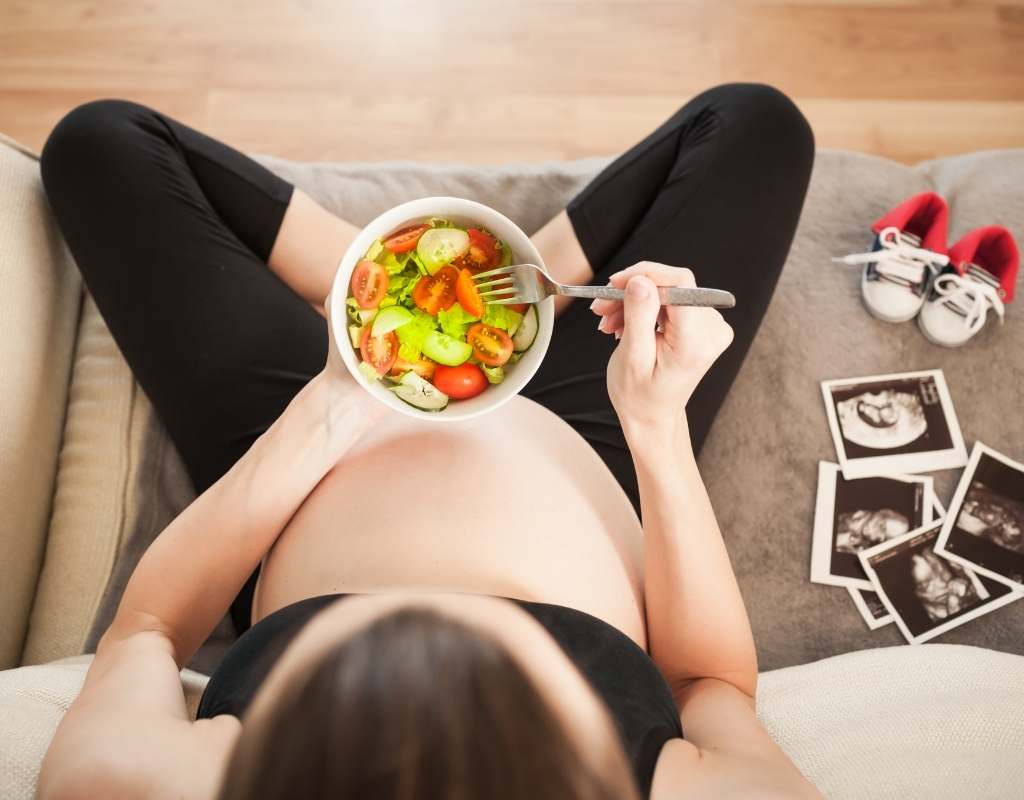The saying “eating for two” is often a source of light-hearted ribbing during pregnancy. But did you know that the recommended dietary intake of some nutrients actually increases by up to 50% when you’re pregnant1?
Eating the right foods with all those extra vitamins and minerals can be a challenge, especially when you may also be dealing with morning sickness, loss of appetite, tiredness, or cravings – not to mention being busy preparing for your little one’s arrival.
To help you navigate this time, we look at some of the key vitamins and minerals that are important for the healthy development of your baby.
Folic acid (folate)
Folic acid is one of the most important nutrients that your body needs in early pregnancy. It aids the body in making new cells and can help to prevent neural tube defects that affect a baby’s brain and spine.
Sources of folate include:
- Green leafy vegetables
- Citrus fruits
- Berries
- Bananas
- Some cereals and bread
Ensuring you have a good store of folate at the time of conception and during those key first months of pregnancy can be hard to maintain through food alone. So if you’re planning on getting pregnant, it’s advisable to take a folic acid supplement before you get pregnant and through to 12 weeks after becoming pregnant2.
Iodine
Pregnancy increases your need for iodine because it is an essential nutrient for the growth and normal development of your baby’s brain and nervous system.
During pregnancy and while breastfeeding, it is recommended to include foods that are high in iodine in your diet and take an iodine-containing supplement to support the needs of your developing baby2.
Foods that are high in iodine include:
- Seafood (ensure it is well cooked)
- Milk
- Eggs
- Some cereals and bread
Vitamin D
The warmth of the sun isn’t just good for our souls! Vitamin D is an essential nutrient during pregnancy for bone, teeth and muscle development as it helps your body to absorb calcium. Vitamin D also assists in the function of our immune system and cell development.
Our usual source of vitamin D is exposure to sunlight (while staying sun safe) but that is not always possible due to climate, location, health, and circumstance. Some foods also contain vitamin D but supplements are available for those at risk of deficiency.
Other important vitamins & minerals
- Iron – Iron deficiency can lead to fatigue for the mother-to-be and in severe cases may result in low birthweight, pre-term birth or poor development. Sources of iron include red meat, fish, chicken, leafy green vegetables, legumes, enriched cereals. It is important not to exceed the recommended intake of iron as too much can cause health issues.
- Vitamin C – To help in the absorption of iron. Sources include a variety of fruit and vegetables.
- Calcium – For bone development and health. Sources include milk and dairy products, nuts, tinned bony fish (ie salmon), and dried apricots, dates and prunes.
- Vitamin B12 – For blood and nerve function. Sources include meat and other animal products, plus fortified foods like breakfast cereals, non-dairy milk and Marmite.
References:
1 National Library of Medicine: Maternal Diet and Nutrient Requirements in Pregnancy and Breastfeeding. An Italian Consensus Document, October 2014
2 Ministry of Health NZ: Helpful advice during pregnancy – Folic acid, iodine and vitamin D, July 2018
3 IQVIA NAT Scan Sales MAT April 2022
Written by Kidspot NZ.
Sources include: New Zealand Ministry of Health, Health Navigator New Zealand, Elevit
See more:







Leave A Comment
You must be logged in to post a comment.